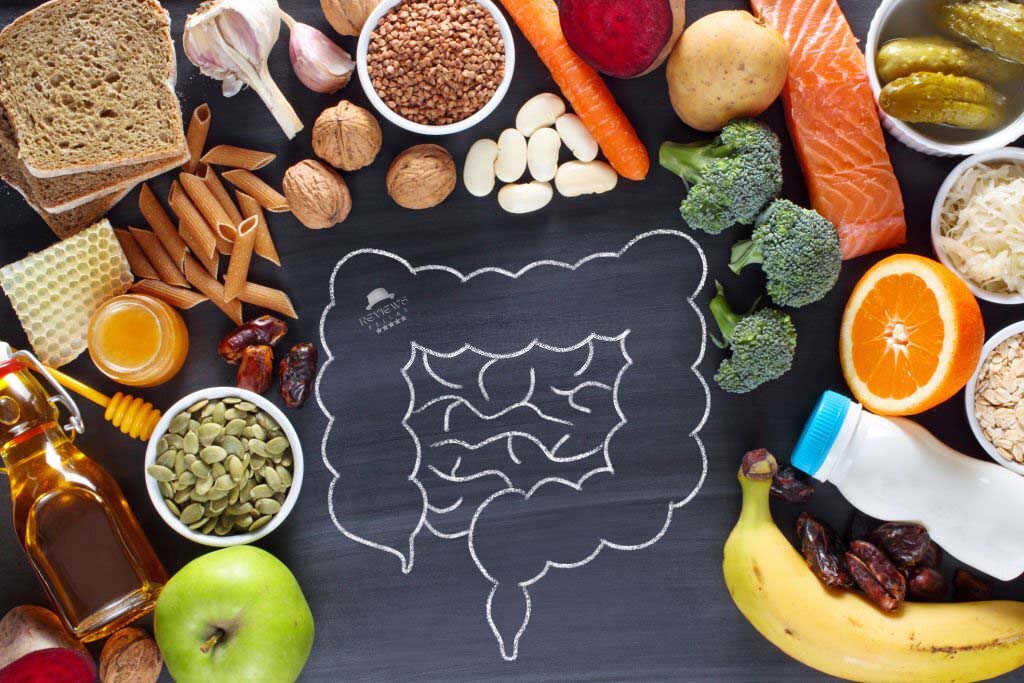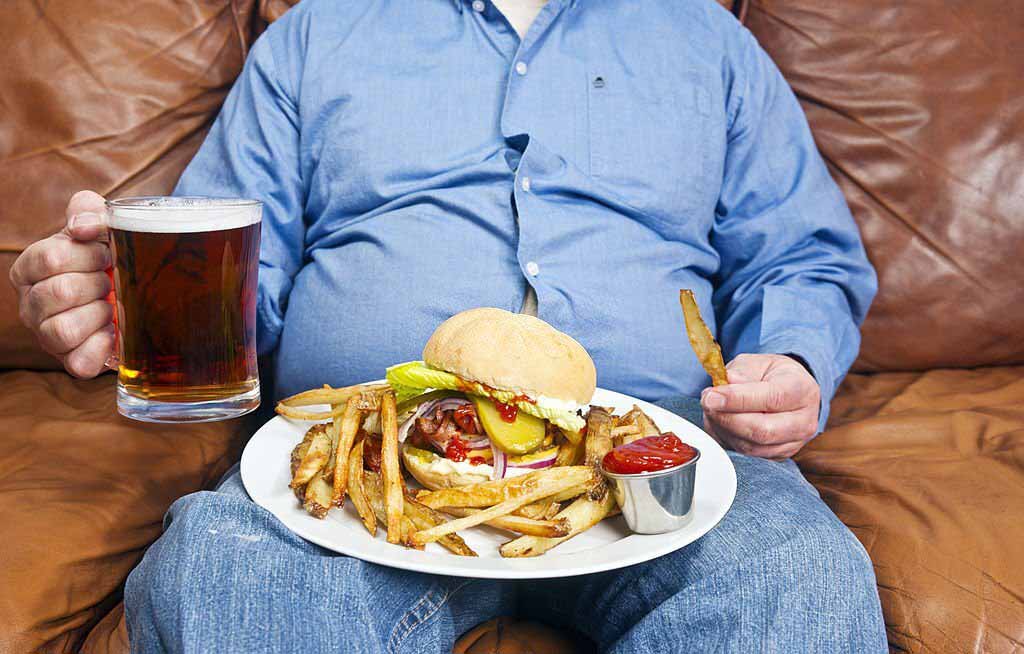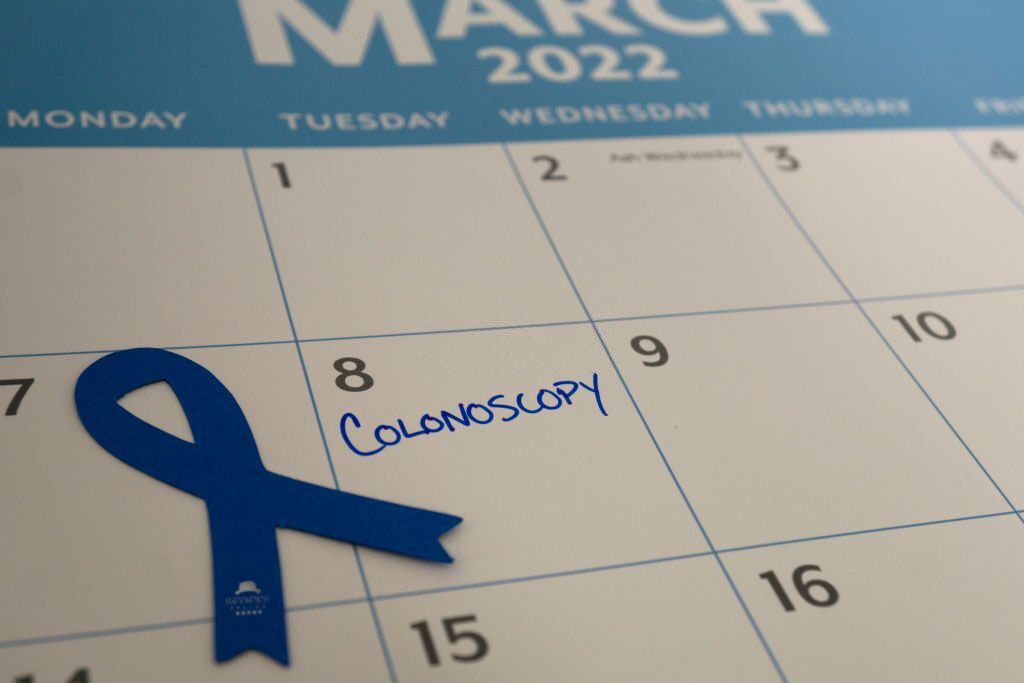This article is reviewed, corrected, and approved by: Julia Weiss CNP| RN | MPH
Have you ever heard of a colonoscopy? It's a procedure that checks out your colon (also known as the large intestine) and rectum to make sure everything is healthy and working properly.
It is essential to consume foods that are soothing to your digestive system after a colonoscopy. This will help you to recover from the procedure and prevent any complications. I will guide you on what to eat after a colonoscopy, post colonoscopy diet and share tips on how to ease back into your normal diet.
What Is A Colonoscopy?
The colonoscope has a light and a small camera at the end, which transmits real-time images to a monitor. A specialist called gastroenterologist is the one who performs the procedure. They use a long, flexible tube called a colonoscope to examine your colon cleanse.
It's a bit of a process, but it's an important way to make sure your digestive health is in good shape. By using this procedure, the doctor is able to thoroughly inspect and visually examine the colon's lining and identify any irregularities, such as polyps, ulcers, inflammation, or indications of colorectal cancer.
Importance of Balanced Diet and Hydration after a Colonoscopy
Maintaining a balanced diet and staying hydrated are crucial components of the post-colonoscopy recovery process. Here's why they are important:
- Adequate Nutrient Intake: Following a balanced diet ensures that your body receives essential nutrients for healing, tissue repair, and overall well-being. It gives your body the things it needs to heal, like vitamins, minerals, and macronutrients.
- Promotes Digestive Health: A balanced diet helps promote optimal digestive health, which is particularly important after a colonoscopy. Eating diverse foods provides a range of nutrients for a healthy digestive system.
- Supports Tissue Repair: The colonoscopy procedure may cause minor irritation or small wounds in the digestive tract. Eating a variety of healthy foods that contain enough protein, vitamins, and minerals can help your body heal and recover more quickly.
- Prevents Nutrient Deficiencies: A balanced diet helps to heal by providing all the necessary nutrients. Include variety in food choices out there.
- Optimal Hydration: Hydration is essential for health and post-colonoscopy recovery. Drinking water and clear fluids prevent dehydration, aids bowel function, and flushes out preparation substances.
- Facilitates Bowel Movements: Adequate hydration and a balanced diet that includes sufficient fiber are important for maintaining regular bowel movements. This can help prevent constipation after colonoscopy, which can be common after a colonoscopy.
- Overall Well-Being: Eating well and staying hydrated is vital for both physical and mental health. They boost energy and mood and help maintain a healthy weight.
What to Eat After Colonoscopy?

So I am about to share what can you eat after a colonoscopy and what you should avoid after a colonoscopy. Here is a proper list of foods to eat after colonoscopy-
1. Clear Liquid Diet
After a colonoscopy, it is common, to begin with a clear liquid diet to allow the digestive system to recover gradually. The clear liquid diet consists of easily digestible fluids that are transparent and do not leave any residue in the intestines.
This phase typically lasts for a short period, usually one to three days, as recommended by the physician. The clear liquid diet phase focuses on hydration and provides minimal strain on the digestive system.
Clear liquids are easily absorbed and leave no residue, preventing discomfort in the gastrointestinal tract. Examples of clear liquids that are typically allowed during this phase include:
- Water: Plain water is the most important fluid to stay hydrated.
- Broth: Clear, low-sodium chicken or vegetable broth can provide some nourishment.
- Fruit juices without pulp: If you prefer fruit juices without pulp, you can try strained or pulp-free options like apple juice or white grape juice.
- Clear sodas: Choose clear sodas like ginger ale or lemon-lime soda, which are non-caffeinated and provide fluids and electrolytes.
- Tea or coffee: Opt for decaffeinated versions (without milk), as caffeine can be dehydrating.
- Gelatin: Plain gelatin, without any fruit or additives, is a popular choice due to its easy digestion.
Avoiding solid foods, dairy products, and colored drinks during colonoscopy fast recovery process. It's also important to listen to your body and report any concerns or difficulties in consuming or digesting the recommended clear liquids.
2. Transitioning to Soft Foods
Once the clear liquid diet phase is completed and the digestive system has had time to rest and recover, the next step is to transition to a soft food diet. In this phase, gradually reintroduce gentle, easy-to-digest foods with guidance from a healthcare provider for personalized instructions.
Here are some general guidelines for transitioning to soft foods after a colonoscopy:
Start with easily digestible foods
Choose foods that are easy for your body to break down and digest. This includes foods like cooked vegetables, tender meats, eggs, and well-cooked grains.
Incorporate cooked fruits
Soft, cooked fruits such as applesauce or mashed bananas can provide added nutrients and fiber while being gentle on the digestive system.
Include protein sources
Opt for soft protein sources like lean meats, fish, tofu, or cottage cheese. These foods provide important nutrients for recovery.
Introduce dairy products gradually
If tolerated, you can slowly introduce dairy products like yogurt or soft cheeses. Some individuals may need to avoid or limit dairy if they experience lactose intolerance or have sensitivities.
Consume small, frequent meals
Instead of having big meals, it's better to eat smaller meals more often throughout the day. This can help avoid putting too much pressure on your digestive system while still providing enough nutrition.
Avoid spicy, greasy, or high-fiber foods
These types of foods can be harder to digest and may cause discomfort. It's best to avoid them during the initial phase of transitioning to soft foods.
3. Foods to Promote Healing and Comfort
After a colonoscopy, incorporating foods that promote healing and provide comfort to the digestive system can aid in the recovery process. Here are some examples of foods that are known to be beneficial during this time:
Low-Fiber Foods
Colonoscopy low fiber diet is a mandatory requirement for everyone undergoing this process. While gradually increasing fiber intake is important for long-term digestive health, immediately after a colonoscopy, it is recommended to consume. Example- white bread, white rice, refined pasta, and seeds.
Lean Protein
Consuming lean protein sources sources is critical for the repair of tissues and healing. Opt for skinless poultry, fish, eggs, tofu, or legumes. These protein-rich foods are also easy to digest.
Cooked or Steamed Vegetables
Vegetables that are soft and well-cooked, such as carrots, zucchini, or spinach, provide essential vitamins and minerals while being gentle on the digestive system. Avoid raw or fibrous vegetables during the initial recovery period.
Soft Fruits
Soft and ripe fruits, such as bananas, melons, peaches, or cooked apples, can provide nutrients and natural sweetness.
Probiotic-rich Foods
Consuming probiotic-rich foods can help restore healthy gut bacteria and promote digestion. Yogurt, kefir, sauerkraut, or other fermented foods can be beneficial. Opt for low-sugar options if possible.
Anti-inflammatory Foods
Eating anti-inflammatory foods like salmon, walnuts, turmeric, ginger, and leafy greens can aid in healing.
Adequate Fluids
Staying hydrated is crucial for recovery. Drink plenty of water and include clear fluids, herbal teas, and low-sugar electrolyte drinks to maintain hydration levels.
Foods to Avoid

During the recovery period from a colonoscopy, certain foods and beverages should be avoided to prevent discomfort or irritation.
Here are some examples of foods not to eat after colonoscopy
- High-Fiber Foods: Avoid foods high in fiber, such as whole grains, seeds, nuts, raw vegetables, and fruits with skins or seeds. It is possible to experience discomfort or bloating after eating these foods.
- Spicy Foods: An upset stomach or discomfort can result from spicy foods irritating the digestive system. It's best to avoid spicy dishes, hot sauces, or foods seasoned with strong spices.
- Greasy or Fried Foods: Avoid greasy and fried foods as they can cause digestive distress.
- Carbonated Beverages: Drinks with carbon dioxide, like soda or sparkling water, can cause gas and bloating. It's advisable to avoid carbonated beverages during the recovery period.
- Alcohol: Alcohol can be dehydrating and irritating to the digestive system. When recovering from a colonoscopy, you should avoid alcohol.
- Caffeinated Beverages: Caffeine can act as a diuretic and potentially cause dehydration. Keeping caffeine levels low or avoiding caffeinated beverages is best for your health.
- Foods with Artificial Sweeteners: Artificial sweeteners, such as sorbitol or aspartame, can have a laxative effect and may cause gastrointestinal discomfort. Check food labels and avoid products containing these sweeteners.
- Tough or Chewy Meats: Tough or chewy meats can be difficult to digest and may strain the digestive system. Opt for tender, lean meats instead.
For personalized guidance or any concerns about specific foods or beverages, consult with a healthcare professional. Avoiding these foods during recovery promotes smooth healing, minimizing potential complications or discomfort.
Foods To Eat After Colonoscopy
The Bottom Line
Eating a healthy diet after a colonoscopy is essential for a smooth recovery. You can begin with clear liquids and progress to a soft, low-fiber diet after colonoscopy. Include cooked fruits, lean proteins, and steamed vegetables.
Stay hydrated and avoid high-fiber (low residue diet for colonoscopy), spicy, greasy, and sugary foods. Following these steps of a low residue diet for colonoscopy might help you to keep your gut healthy. If you face any issues, immediately visit a gastroenterologist.


